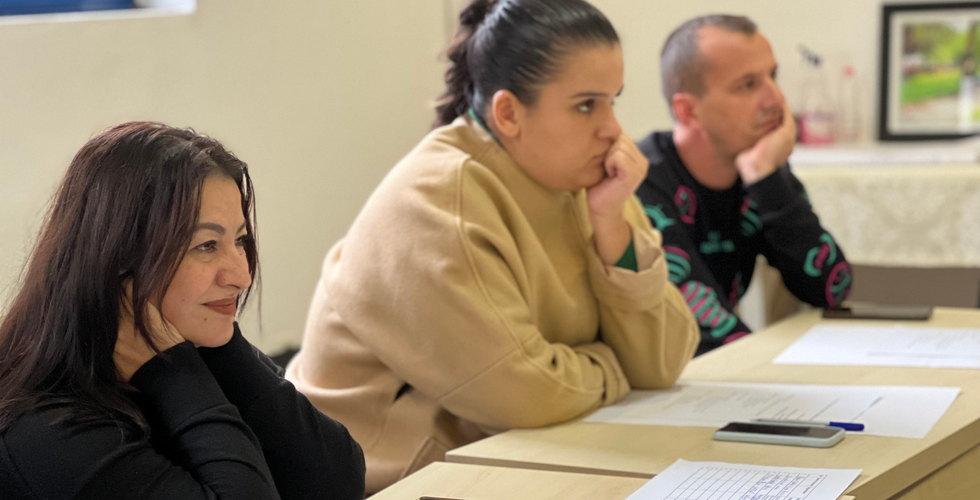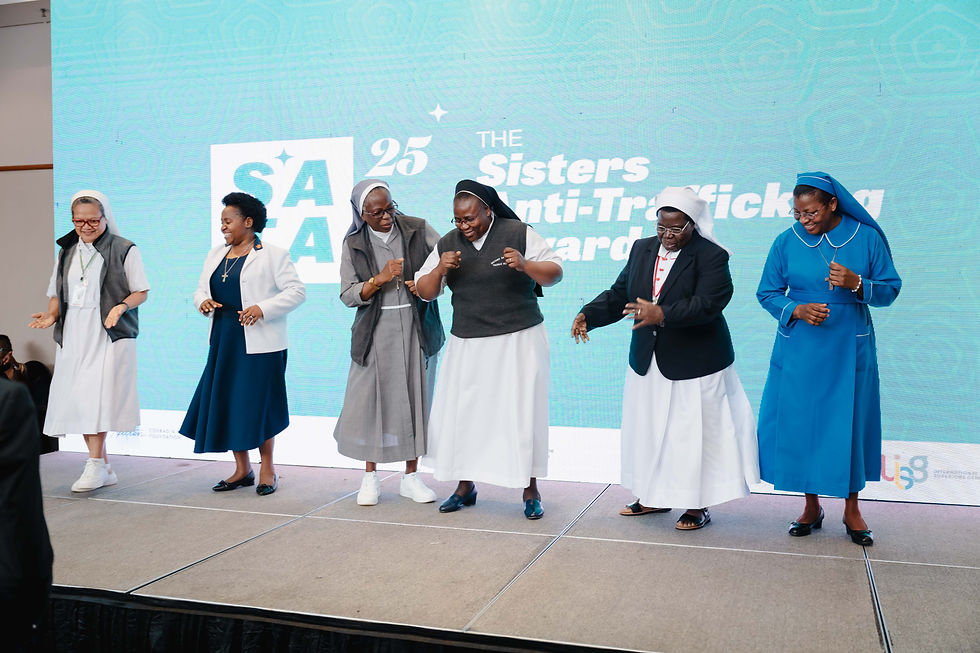Albania Network: Training Reports
- Arise

- Oct 7, 2022
- 3 min read
Updated: Feb 6, 2023
Our Albania team is now conducting sector meetings to train anti-slavery practitioners from across the country, led by our Albania coordinator, Anxhela Bruci. The meetings have covered an array of topics, including burnout and stress prevention for frontline workers.
July
In July, the network, which comprised 11 organisations (NGOs and government institutions) and 22 representatives, met to discuss the prevention of online trafficking. The training was delivered by Colin Carswell, an anti-trafficking expert based in the UK.
The training was interactive - which allowed participants to share their own expertise and insight into the dynamics of human trafficking in Albania. Push and pull factors were discussed, and observations about the tactics of online traffickers were shared and analysed. Real-life examples were presented, and the network discussed the business models of current traffickers and enhancing practical strategies for eradication.
It was a highly informative session, and lessons will be used practically by the various civil society organisations that attended, along with the government department representatives.
Above: The Albanian network meeting in July (photo from Anxhela Bruci).
September
In September, representatives from Albanian NGOs and frontline groups in our anti-trafficking network met again in Tirana. The network had organised a capacity-building training, focussed on practitioner wellbeing. The training was carried out over numerous sessions.
18 representatives met - all involved in direct service provision on the frontline, working to end slavery and trafficking in Albania. The training was delivered by Lediona Braho, a clinical psychologist and therapist.
Because of the nature of frontline anti-slavery work, practitioner wellbeing is of great concern. Anti-slavery actors on the frontline are often faced with highly traumatic and volatile situations, and deal with intense human suffering and cruelty.
The training focused on wellbeing, with particular attention paid to anti-stress and anti-burnout strategies. The attendees were taught about stress identification and management, the long-term causes and effects of stress and poor mental health, and were also given advice about self-care.
This included specific guidance about dealing with work-related stress and secondary trauma, to which frontline workers are vulnerable.
Above: The network meeting in September, which focussed on practitioner wellbeing (photo from Anxhela Bruci).
November
In November, the network met for more capacity training, and the meeting focussed on monitoring and impact evaluation. Frontline groups are often at a disadvantage - with less experience of reporting to the sector (and funders). Despite local programmatic expertise, frontline groups often go unnoticed and under-appreciated as a result of such disadvantages.
Developing strong reporting and monitoring capabilities allow the successes of frontline work to be properly communicated, and subsequently appreciated. The training discussed measuring impact and impact measurement tools, and featured discussions on verification, donor reporting, data collection, outputs and impact, and impact documentation.
Understanding the impact of community-led projects, and learning from frontline collaboration, is a crucial condition for eradicating global trafficking. Helping frontline groups secure the appreciation and attention they deserve is an important part of our model. We are honoured to be working with the brilliant organisations in the Albania network, and are looking forward to a productive 2023.
Above: November network, which focused on planning and impact measurement (photo from Anxhela Bruci).
December
In December, Arise Albania organised an anti-trafficking leaders retreat, to discuss anti-slavery strategies for 2023. The groups protect families vulnerable to trafficking, and work with government bodies to protect citizens and prosecute traffickers. They facilitate awareness campaigns, address the root causes of vulnerability, and advocate for survivors.
Over two days, leaders from across our network discussed numerous topics, including;
Strengthening collaboration between anti-trafficking groups;
Evaluation of 2022 action and strategies;
Brainstorming ideas on joint initiatives against human trafficking in Albania in 2023;
What Arise can do to continue strengthening the work of anti-trafficking NGOs.
Arise is excited about the coming year, and honoured to work with such dedicated trafficking prevention leaders across Albania, particularly as the issue looms large in domestic political discussion.
Above: Arise Albania network training in December, where NGO leaders convened to explore collaborative opportunities for 2023 (photo from Anxhela Bruci).
January 2023
January saw our Albania network training sessions continue with an in-person visit from Tove van Lennep, Arise's Head of Communications and Relationships. Tove leads on Arise's global fundraising, communications strategy, and relationship management. The training format was interactive and the content covered the following topics:
Creating a communication plan from the beginning of the year/term
How to plan content online and the importance of branding consistency in colours/fonts/styles of communication
Google ads for NGOs
Innovative methods to communicate the impact of social programs online
Strategic communication tips related to social media content for anti-trafficking organisations
These skills are important for organisations in the internet era, where digital presence and impact communication are increasingly influential. The interactive nature of the session gave Tove greater insight into the digital capabilities of frontline NGOs, and how Arise can shape further support to overseas partners.
Above: Tove van Lennep, Arise Head of Communications and Relationships, delivers communications training to frontline NGOs (January 2023, photo from Anxhela Bruci).






































Comments